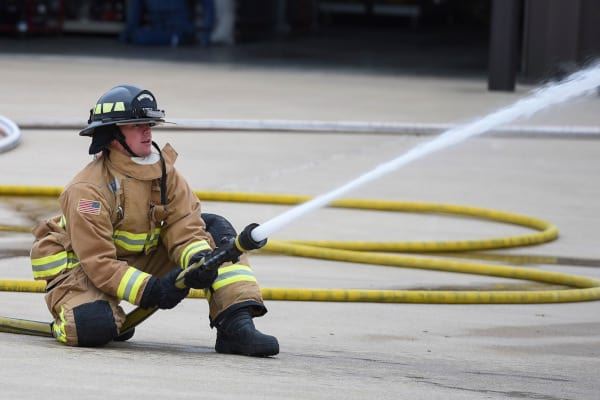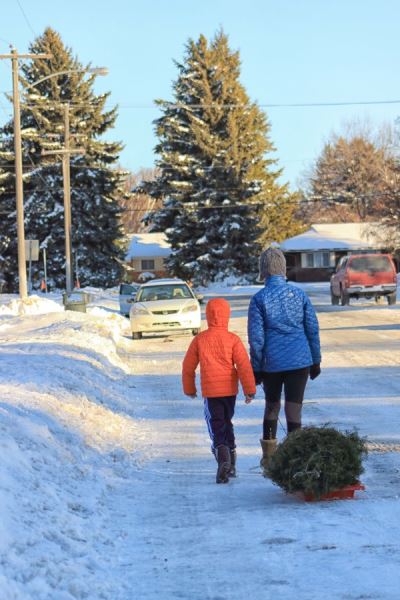
Feet pounded the floor of the Idaho Falls Fire Station 1 headquarters as firefighters rushed to attend a call. Within a minute of the call echoing through the station, a fire truck pulled out into the street, sirens blaring.
In a 20 minute window, three separate calls were made to the station. That’s the life of the Idaho Falls Fire Department, which received 13,422 calls in 2018. A majority of those being ambulance assists with car accidents, illness and other non-fire related situations.
Of the calls, 240 were fire related, with things like vehicle, dumpster, or commercial related fires taking up the majority. Of the 240, 34 were residential fire calls. Though house fires may be a small percentage of what the IFFD does, they happen and result in deaths nationwide every year.
Fires in the home could often be avoided by following simple guidelines and safety procedures. In the cold, winter months of Idaho, you don’t see brush fires like you would in the summer, but fires can start in your home nonetheless. Here are 5 things to watch during the winter months.
Space Heaters
Sometimes a blanket won’t quite cut it and a space heater can warm up the room just right. According to Glade Prestwich, a prevention officer for the fire department, space heaters overload the circuits in older homes and outlets can’t handle the output a space heater requires.
“In both my experience fighting fires and in my experience in the Marshall's office investigating, it has been the overuse of equipment, plugging too many things into an outlet.”
This can cause resistance in the wiring, which leads to a fire.
Chimney Fires
Wood burning stoves can cause chimney fires if not properly maintained. A dirty chimney quickly becomes a highly combustible chimney.
“There’s always chimney fires at the begging of the year,” Prestwich said. “People should have those cleaned before firing them up.”
Christmas Trees
“20 years ago someone left their tree up in February,” Prestwich said. “That thing was bone dry. They were using the old style lights that use a lot of heat. We had a quick response so it was contained to that part of the living room.”
Prestwhich’s advice: once the holiday season ends, get rid of the tree.
Furniture
50 years ago home furniture was made of cotton-type substances. Today, modern homes become furnished with synthetic materials that burn much quicker that cotton.
Prestwhich said, “We may have the same response time we had 50 years ago, but the fires are much bigger now.”
Keep your furniture away from candles or other heat sources in the house.
Fryers
Some people choose to cook their turkey in a fryer, compared to the typical oven approach. If the overheated oil spills over onto the heat source below, you can quickly have a fire on your hands. If you are cooking inside or in a garage in an attempt to beat the heat, the fire can turn into a house fire.
“They went through a popular phase where that was the fad,” Prestwich said. “Everyone was trying it. I haven’t heard of one in recent memory, so it’s not like we have a huge problem, but if you look at nation wide statistics, truly there are a few of them across the country every year.”
In addition to watching out for these possible fire risks, further prevention steps can be taken. Prestwich suggests keeping smoke detectors, carbon monoxide detectors and fire extinguishers in the home, as well as having an emergency escape plan in place.
For people in new home construction, Prestwich suggests considering an in-home sprinkler system.
“They’re not real popular in Idaho, but they are gaining popularity across the country. It doesn’t add a tremendous cost to the home, it can help on insurance premiums and it certainly would buy you more time to get out. There’s this misconception that if you have sprinkler systems you could get water leaks. Just like your plumbing, if it’s properly installed you’re not going to have those kinds of problems.”
Online general fire safety resources are available at US Fire Administration website or the IFFD website.